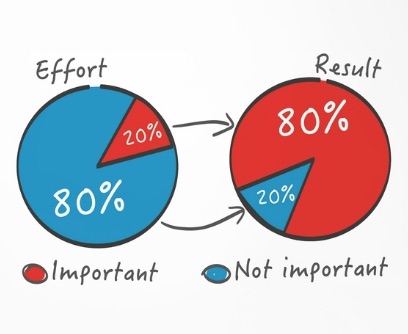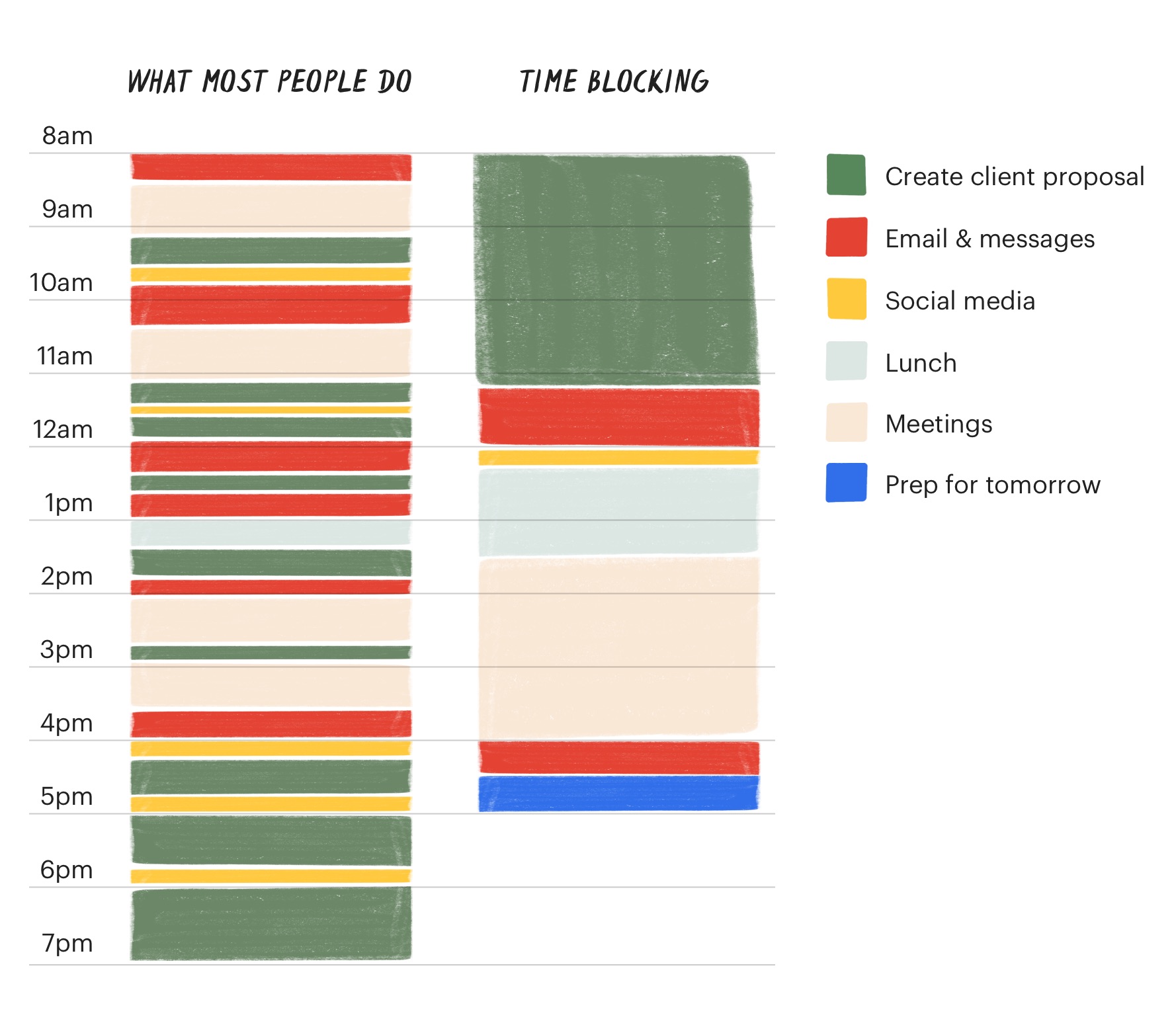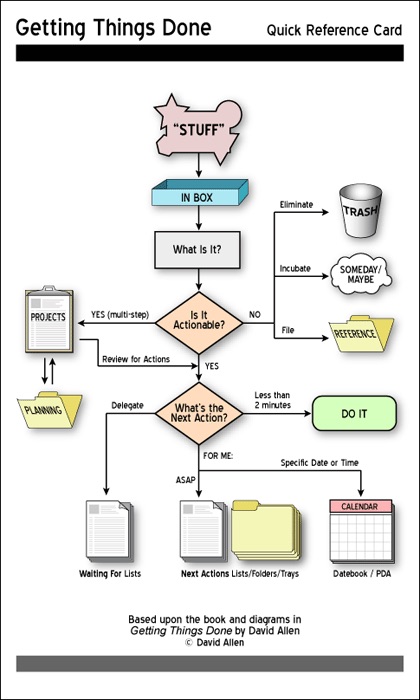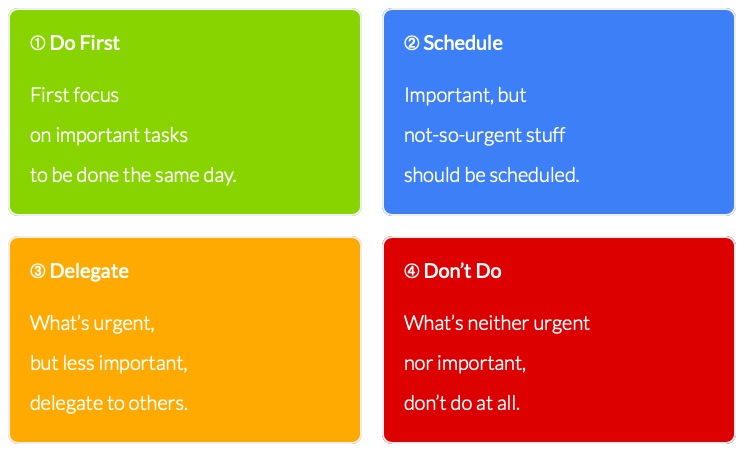Employees in almost every workplace find themselves drowning in endless projects. So, it should not come as a surprise that time management is a hot topic in almost every field.
When you fail to manage your time properly, it can cause stress and lead to a loss in a deep focus. That's why knowing how to organize and optimize your time is essential to reduce stress and inspire productivity.
Not particularly sure where to begin improving your time management skills? This article is a great start! To help you develop the essential time management skills, we’ve gathered the world-class time management advice worth implementing
1. Following the 80-20 rule
The Pareto Principle asserts that 80% of the effects come from only 20% of the causes. This principle is commonly implemented in sales stating that 80% of sales come from only 20% of customers.
Besides sales and economics, the Pareto Principle can also be applied in time management. When you affirm 80% of results come from only 20% of effort, it can change the way you schedule your day dramatically.
You can use this principle to eliminate the unnecessary or unproductive items on your to-do list. Remember that at the end of the day, the major results come from minor efforts.

2. Time blocking
Time blocking refers to the time management method that requires you to divide your day into blocks of time. Each time block is separated from others and is aimed to accomplish a specific task.
Time blocking is perfect when you have to manage multiple projects simultaneously. In fact, Twitter’s SEO, Jack Dorsey, uses the time blocking method to run two companies at the same time.
When you schedule your day and split time into blocks, make sure to set a specific time block for email management to limit your email time throughout the day.

3. Strategic planning
Knowing what you want to accomplish throughout the day already sets you up for success. Strategic planning can help you with that.
Getting things done (GTD) technique is a part of the strategic planning approach that is particularly helpful when you have a lot of “small” tasks. Getting things done method is based on the idea of organizing your schedule, priorities, and to-do lists in a way that makes them all manageable. The GTD makes it easy to see what needs to be done and allows you to prioritize important tasks.
You can use this card as a reference when prioritizing and organizing your tasks for the day.

4. Prioritization
When you have to manage multiple projects simultaneously, your success is mostly built upon your ability to set clear priorities. Creating an important-urgent matrix is a great way to develop your prioritization skills.
Important-urgent matrix (a.k.a. The Eisenhower Matrix) is based on the idea of prioritizing tasks by urgency and importance and grouping them into four quadrants.
Here's how it works.
- Quadrant 1: Both urgent and important tasks, all tasks require immediate attention
- Quadrant 2: Not urgent but important tasks, tasks require attention but don’t have pressing deadlines
- Quadrant 3: Urgent and not important tasks, tasks can be delegated to other team members
- Quadrant 4: Not urgent and not important tasks, distractions that should be removed from your schedule

5. Outsourcing
The third quadrant of the important-urgent matrix suggests another important time management skill - outsourcing. The ability to delegate tasks to other team members is an important part of successful project management. Make sure to keep track of delegated tasks by email, telephone, or corporate messengers.
6. Encouraging keystone habits
According to Charles Duhugg, the author of “The Power of Habit”, keystone habits refer to the habits that help you stay productive and transform your life for the better.

Managing multiple projects is always stressful. That’s why Duhigg’s keystone habits framework suggests that keystone habits, like meditating, developing a daily routine, or exercising, can help you stay more focused and better suited to manage your time.
7. Creating disruption-free zones
Social media and email are the biggest enemies that often distract work and encourage procrastination. That’s why the ability to create disruption-free zones is another crucial time management skill.
A disruption-free zone is a figurative space that prevents you from being inattentive or procrastinating. When you need to manage multiple projects at the same time, it makes sense to put social media away for deeper focus. You can create your own zone by keeping your social media and email notifications off during work time.
8. Telecommuting
Back in 2015, the average American commute was over 26 minutes, and the daily commute continued to rise ever since. We have to waste so much time to get ready and get to work, that sometimes telecommuting seems like a better alternative.
By offering your employees the option to work remotely, you can save time, ultimately boost their productivity, and inspire a better working environment. While not possible for every job, telecommuting once or twice a week can save you a lot of time.
9. Preventing work burnout
“Regardless of the work you do, there is always a moment when you feel like things are getting out of control,” shares Domantas Gudeliauskas, a marketing manager for the Zyro website builder. “Commonly confused with work stress, burnout seriously damages our productivity, especially if you have to lead multiple projects in parallel.”
Here are some useful tips to help you avoid and battle the work burnout.
- Learn to identify your breaking point that leads to the burnout. Most of the time, something as simple as taking a day off will help you take the edge off.
- Occasional telecommuting is another way to avoid burnout.
- Seek advice and communicate with your coworkers about how they manage work burnout.
10. Leveraging technology
Modern technologies make it easier to manage your time when leading multiple projects. By embracing technological innovations, you can save time, effort, and achieve better results. From scheduling apps to focus boosters and meditation apps, there are so many tools that can help you stay focused and productive leading multiple projects.
Take Your Time Management Skills To The Next Level
Even though all of us have 24 hours in a day, it seems like some people know how to get the most out of every minute. While it’s highly unlikely that these people have discovered the secret to slowing down time or time traveling, there’s something special about them. They have developed time management skills that allow them to manage multiple projects simultaneously.
When you have to manage multiple projects in parallel, the quality of your work largely depends on your time management skills. Being intentional about how you channel and manage your energy is key. By following these ten tips, you can learn to manage your time and achieve the best results possible!
About the author:
Stacey Wonder is a content marketer who enjoys sharing best practices for self-development and careers with others. In her free time, Stacey is fond of contemporary dance and classic French movies.
What would you like to know and what would be the best way to share this information to you? What is the best tips & tricks, what workaround do you use? We'd really appreciate your insight on these ones to make our integrations better, more productive and much more efficient. Comments, tweets are always welcome.